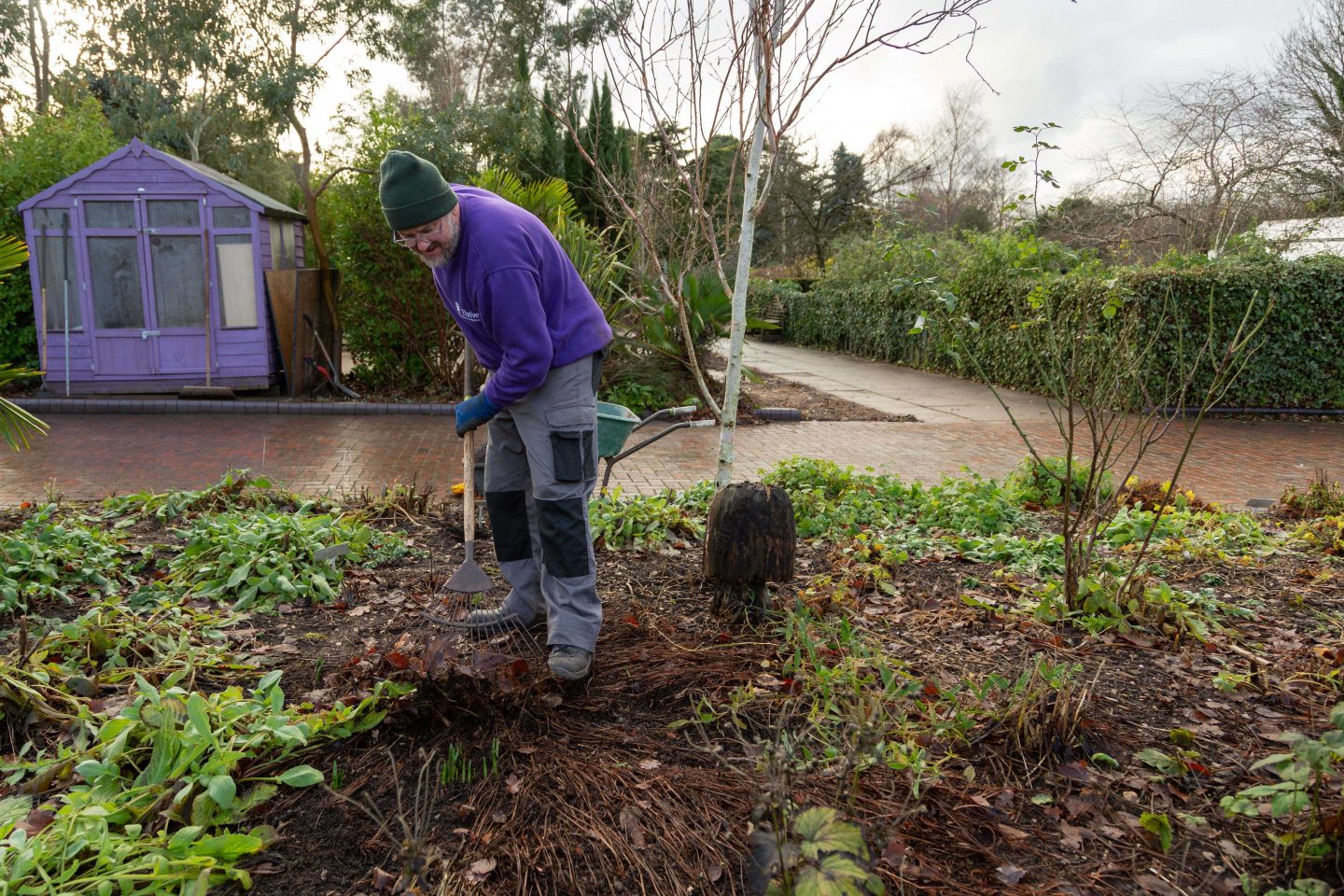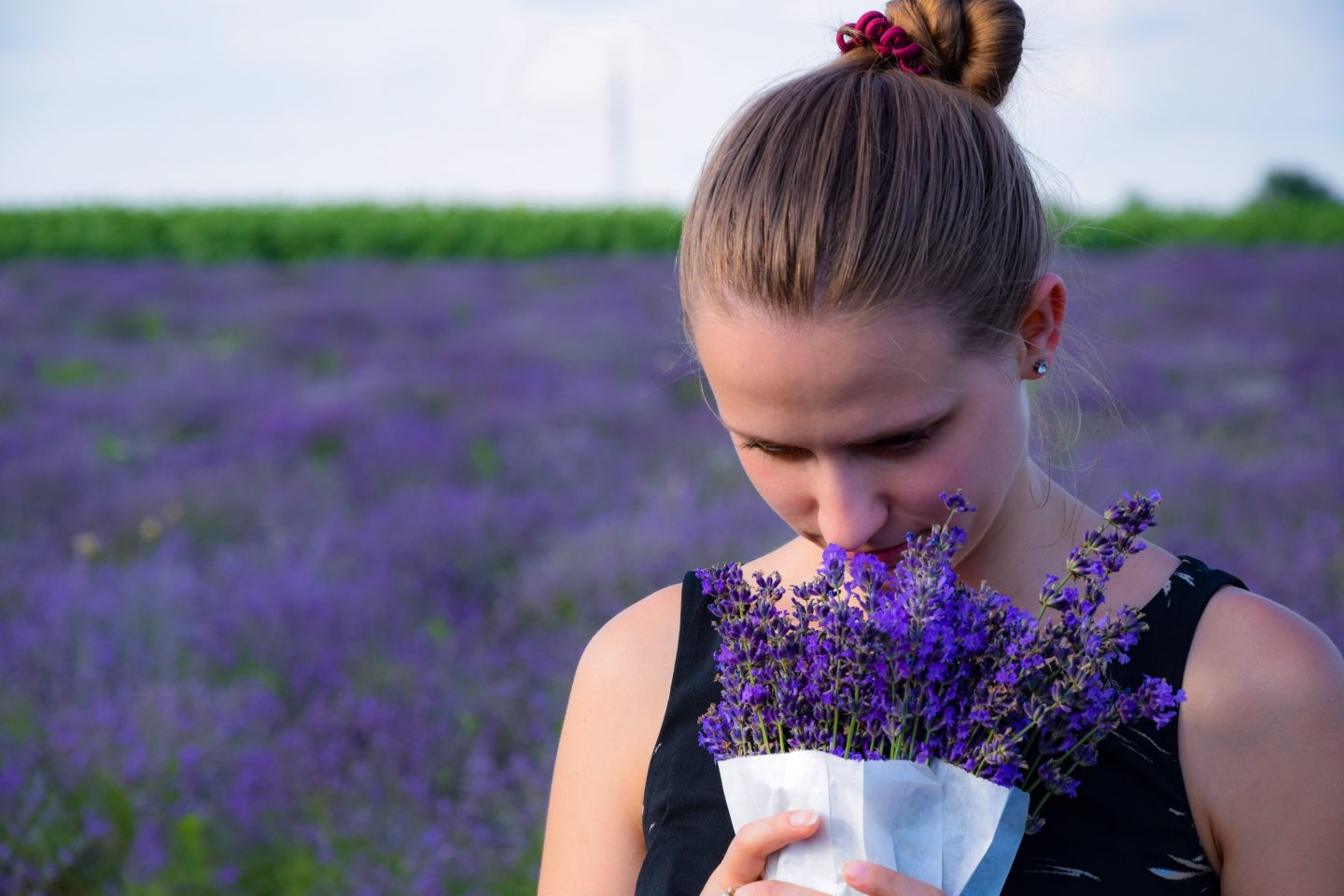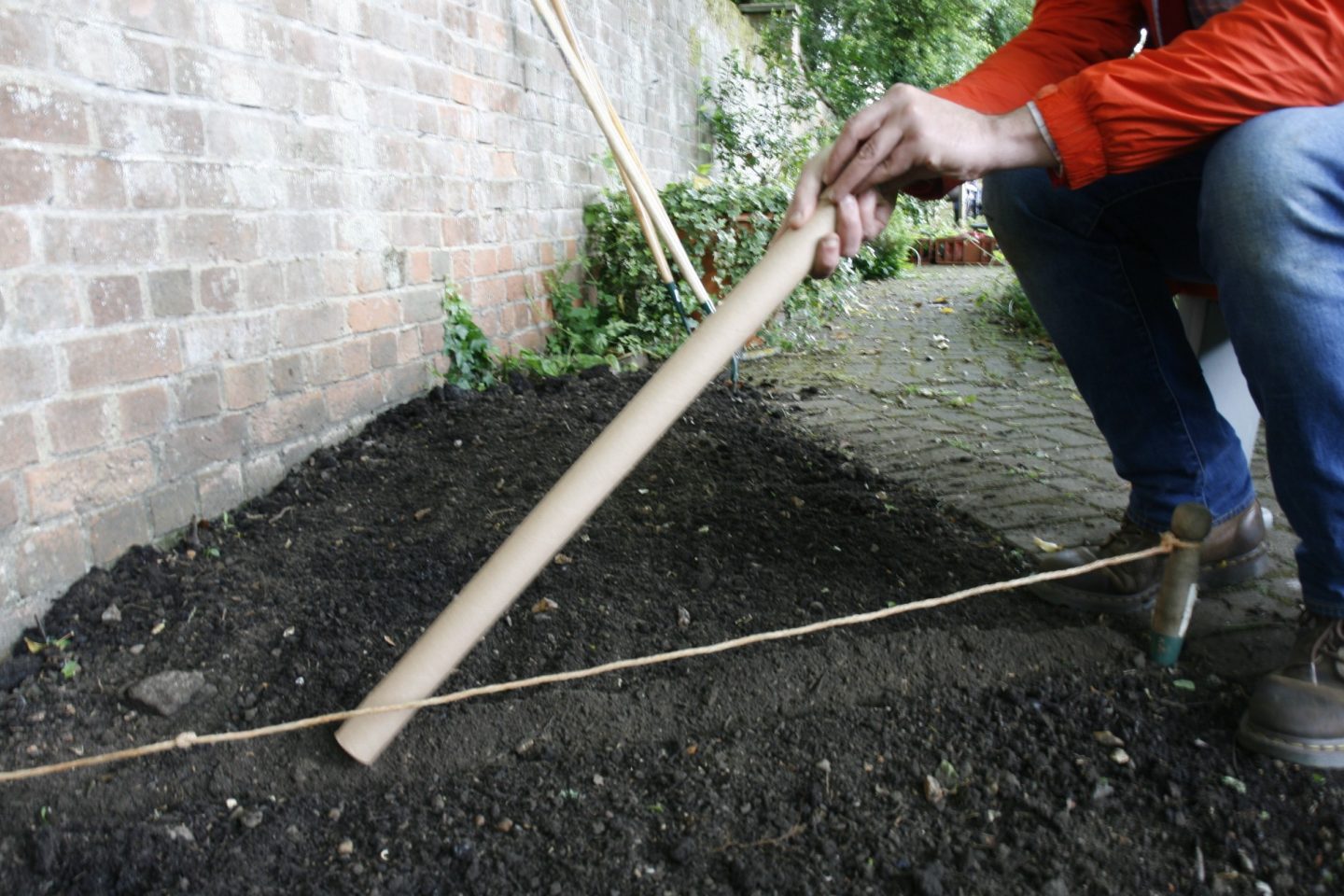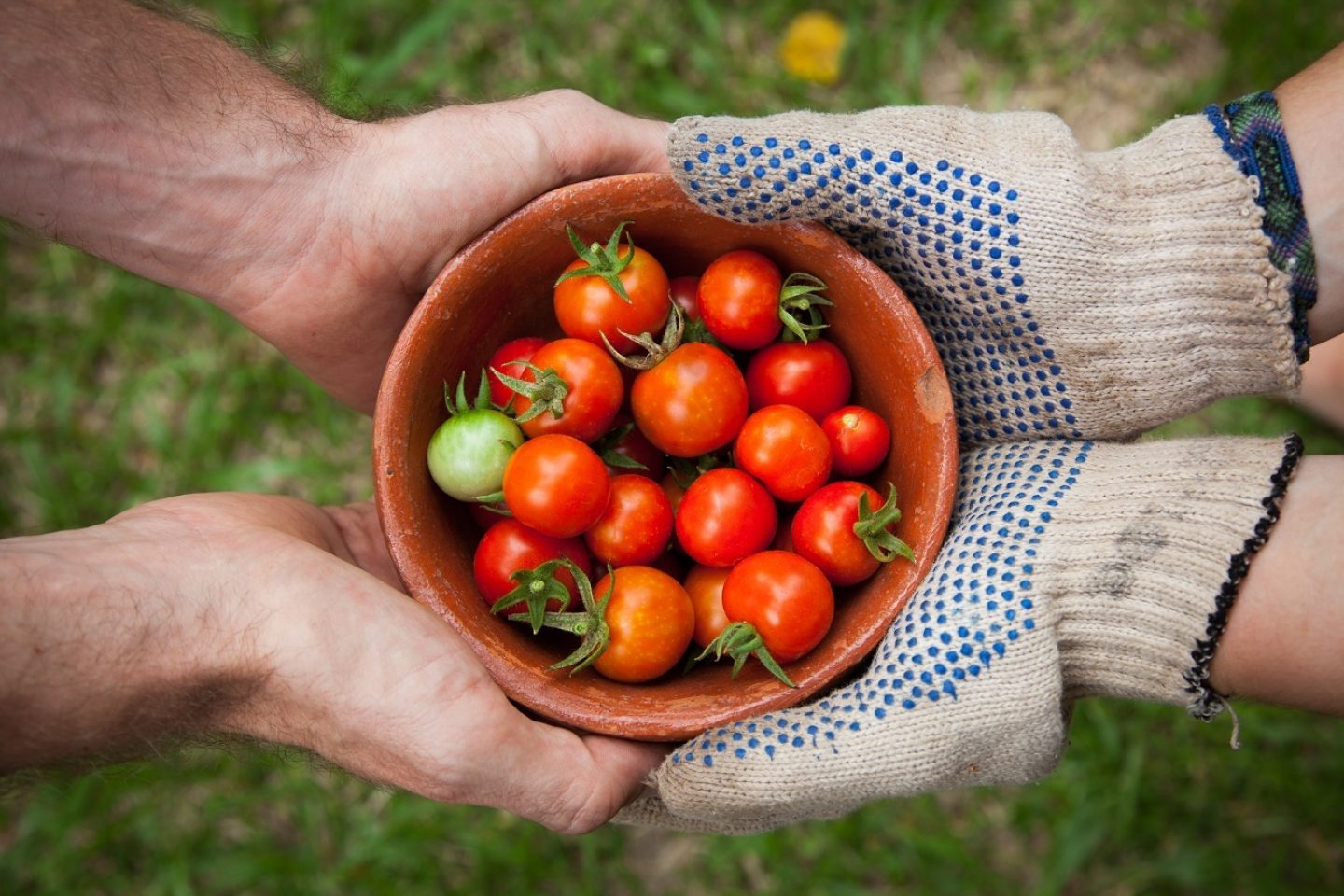
The five ways to wellbeing were developed by the New Economics Foundation. They aim to improve the mental health and wellbeing of the whole population. They recommend we:
The amazing, restorative power of gardens and nature can help meet all five of these.

Feeling close to and valued by other people are fundamental human needs. Evidence shows these things help us to function well in the world.
How can gardens and nature help me to connect?
The great outdoors, or at least a garden, can bring you closer to people than being shut away, as it were, in your own room. It's got a wonderfully beneficial social effect.
Chris Underhill, Thrive Founder
The evidence

Regular physical activity can lead to lower rates of depression and anxiety.
How can gardens and nature help me to be active?
I live in a flat now, with no garden, but I have an allotment. There’s always lots of clearing and digging to be done, so it’s a good way of keeping fit.
Mark, Thrive client gardener
The evidence

Being aware of what is happening in the present can enhance your wellbeing. Evidence shows savouring ‘the moment’ can help to reaffirm your life priorities.
How can gardens and nature help me to take notice?
When we’re outside surrounded by nature and we hear the birds tweeting or the grass rustling in the breeze, these sights and sounds have a tangible effect on us and uplift our spirits.
David Domoney, TV gardener and Thrive ambassador
The evidence

Continued learning enhances self-esteem. It encourages social interaction and a more active life.
How can gardens and nature help me to learn?
When you grow something from seed to the plate, there’s a real sense of achievement.
Mark, Thrive client gardener
The evidence

People with a great interest in helping others are more likely to rate themselves as happy.
How can gardens and nature help me to give?
Gardening has helped me overcome and achieve more than I ever expected. I'm now incredibly passionate about inspiring others to see how gardening can make a difference to them.
Annabelle Padwick, Thrive ambassador & Founder Life at No 27
The evidence